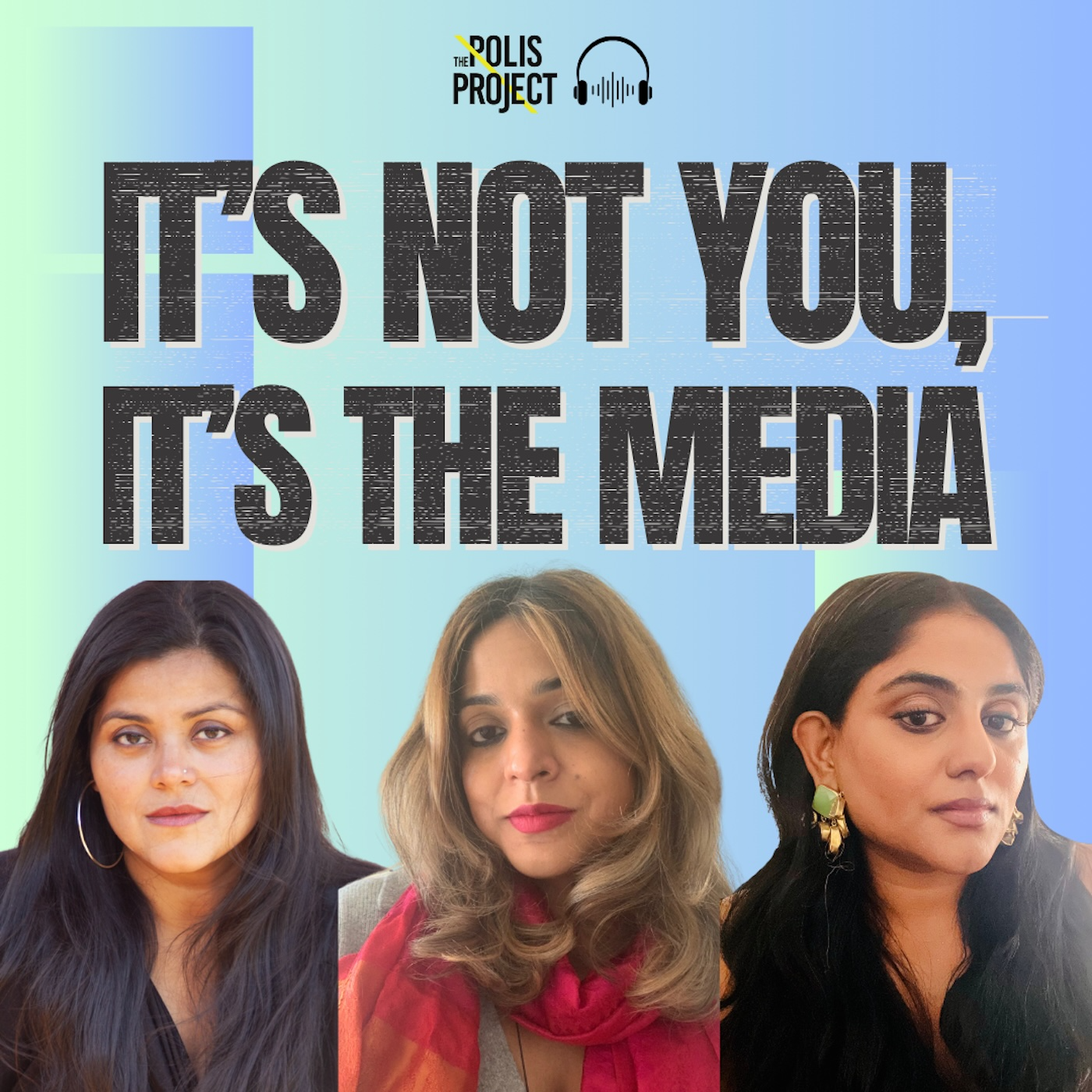When the Media Tries to be Woke
Suchitra, Bhakti, and Madhuri ask what happens when the media tries to be woke. Turns out, it all becomes very cringe. The episode unpacks performative wokeness in mainstream media, and exposes how the term woke – rooted in Black resistance – has been stripped of its radical origins and become a marketing tool. The word woke originates in abolitionist and Black liberation movements but today it has become adopted, diluted, and misused in mainstream culture. The media uses woke language and terms for signaling progressiveness while avoiding substantive engagement with systemic injustices. The hosts explore how the media co-opts wokeness by using tactics like breadcrumbing – a strategy where media outlets offer sporadic, surface-level content on social justice issues to maintain credibility without making meaningful change – and cherry-picking, wherein palatable elements of activism are co-opted while deeper critiques of oppressive systems are ignored.
They offer sharp critiques of cultural moments which are etched in virtue-signaling and performative politics, while examining how wokeness has been reduced to a spectacle. They also analyze the ways in which the media has mishandled significant movements like #MeToo and Black Lives Matter. The episode also explores the concept of cancel culture, exposing how its effects disproportionately target marginalized voices – such as Palestinian authors – while powerful figures often face minimal consequences and return to the spotlight unscathed. The hosts argue that this selective accountability reflects the media’s complicity in upholding existing power structures, even as it masquerades as progressive. This episode argues that wokeness is a form of gaslighting when wielded by the media. By projecting an image of moral clarity and progressive values, the media deflects criticism and perpetuates the very systems of oppression it claims to challenge.
Keywords: Wokeness, woke media, gaslighting, pop culture, appropriation, co-option, BLM, MeToo, systemic oppression, selective outrage, activism, cherry-picking, breadcrumbing, capitalism, commodification, progressiveness, tokenism, representation, stereotypes
Key Takeaways:
- The term woke is historically rooted in values of resistance, abolition, and Black activism. Since then, it has evolved and appropriated by mainstream culture and reduced to a tool for advancing capitalist forces, evident from woke bumper stickers, tote bags, clothes, and meme culture which takes no critical stance or accountability.
- Examples of wokeness are etched in virtue signalling and performative politics. Some examples are, Nancy Pelosi appropriating Colin Kaepernick’s take the knee protest against the NFL, or Beyonce co-opting the message of Black Panthers in Super Bowl 2016.
- Breadcrumbing is a technique used by the liberal media to maintain credibility by sporadically engaging and publishing progressive content without advocating for systemic change. Similarly, cherry-picking is another technique used to highlight aspects of activism which appear essential while ignoring the foundational issues of capitalism and imperialism.
- The media overall prioritizes aesthetics, visible from the reception of movies like Barbie and Oppenheimer, all the while superficially representing and covering important campaigns such as the BLM protests, MeToo, and anti-racism protests.
- The media practices cancel culture and are only selectively accountable. They dilute the disproportionate impact of cancel culture on marginalized communities.
- The media uses wokeness to deflect criticism to maintain enabling oppressive systems of power. The media also conflates token representation with actual progress.
Hosted by: Suchitra Vijayan, Bhakti Shringarpure, and Madhuri Sastry
A podcast by The Polis Project
References:
- Reclaiming the Word “Woke” as Part of African American Culture https://naacp.org/resources/reclaiming-word-woke-part-african-american-culture
- Congressional Democrats criticized for wearing Kente cloth at event honoring George Floyd, by Alicia Lee (CNN) https://www.cnn.com/2020/06/08/politics/democrats-criticized-kente-cloth-trnd
- The Literature of White Liberalism, by Melissa Phruksachart https://www.bostonreview.net/articles/melissa-phruksachart-literature-white-liberalism/
- The New York Times on Barbie Spotlight, https://www.nytimes.com/spotlight/barbie-movie
- The Uncounted, by Azmat Khan and Anand Gopal (NY Times) https://www.nytimes.com/interactive/2017/11/16/magazine/uncounted-civilian-casualties-iraq-airstrikes.html
- Nobel winning Hiroshima survivor's Gaza comparison angers Israel, by Middle East Eye https://www.middleeasteye.net/news/israel-criticises-atomic-bomb-survivor-over-hiroshima-gaza-comparison
- A Palestinian author’s award ceremony has been cancelled at Frankfurt Book Fair. This sends the wrong signals at the wrong time, by Denis Muller (The Conversation) https://theconversation.com/a-palestinian-authors-award-ceremony-has-been-cancelled-at-frankfurt-book-fair-this-sends-the-wrong-signals-at-the-wrong-time-215712
- Palestinian novel pulled from curriculum in N.J. school district, by Steve Strunsky (nj.com) https://www.nj.com/essex/2024/01/palestinian-novel-pulled-from-curriculum-in-nj-school-district.html

